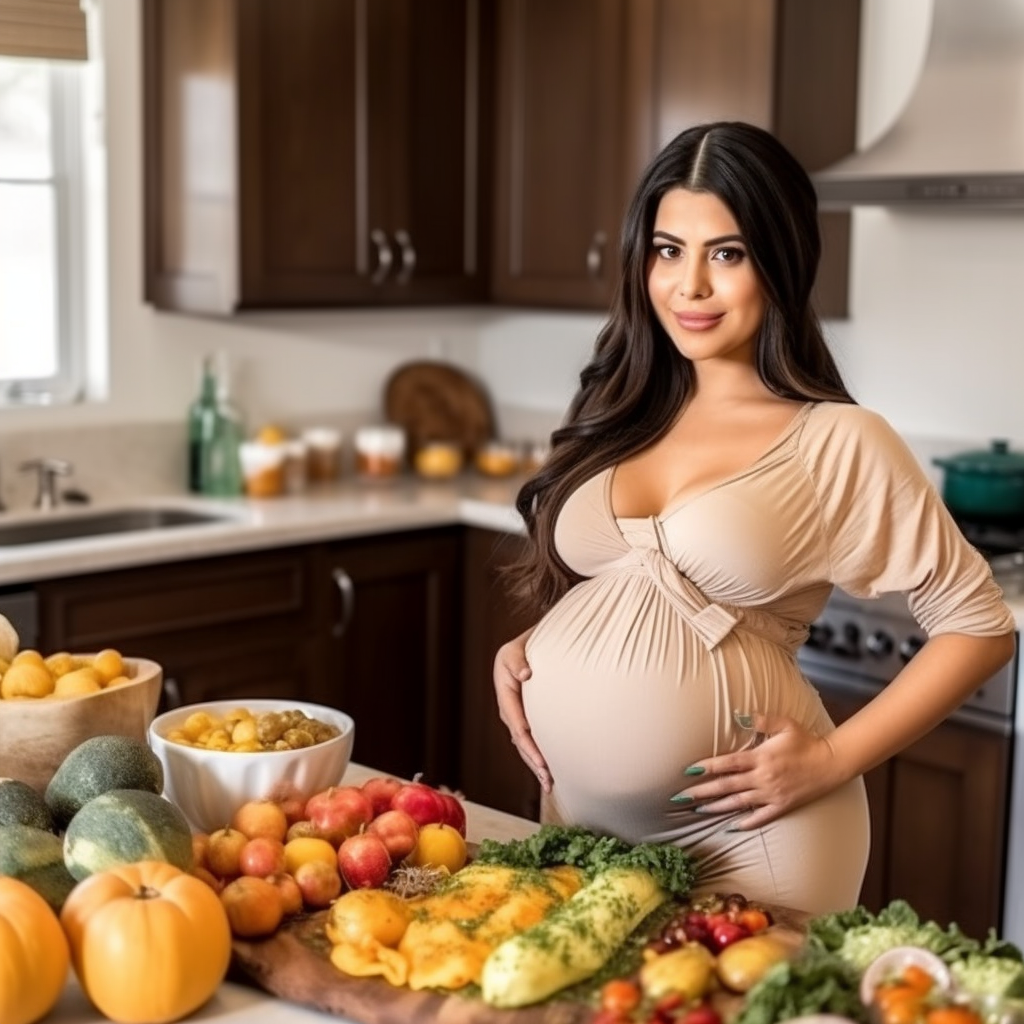As an expecting mom, I know how important it is to maintain a healthy diet for the well-being of both myself and my baby. With so many choices and information out there, it can be overwhelming to figure out the best foods to eat while pregnant.
In this guide, I’ll share my experiences and knowledge about prenatal nutrition, focusing on the most nutritious and healthy foods for pregnant women.

The Importance of Folic Acid
Folic acid is an essential nutrient for pregnant women, as it helps prevent neural tube defects in the developing baby. Foods rich in folic acid include fortified cereals, fortified orange juice, and green leafy vegetables like spinach and kale. Taking a prenatal vitamin containing folic acid is also a great way to ensure you’re getting enough of this vital nutrient.
Iron: Essential for a Healthy Pregnancy
Iron is crucial during pregnancy to prevent iron deficiency anemia and support the baby’s growth. The Department of Agriculture recommends that pregnant women consume at least 27 milligrams of iron daily. Some of the best sources of iron include lean red meat, poultry, and beans. Pairing these iron-rich foods with vitamin C-rich foods like citrus fruits can enhance iron absorption.
Healthy Fats for Baby’s Brain Development
Healthy fats, such as omega-3 fatty acids, are vital for the baby’s brain development. Some of the best sources of healthy fats include fatty fish like salmon and avocados. Including these foods in your pregnancy diet can help support your baby’s brain growth and overall health.
Protein: A Building Block for Your Baby
Protein is essential for the baby’s growth and development. Expecting women should consume protein-rich foods like lean meat, poultry, fish, eggs, beans, and low-fat dairy products. These foods provide the necessary amino acids that help build and repair tissues in both the mother and the baby.
The Power of Whole Grains
Whole grains, such as brown rice, quinoa, and whole grain toast, are excellent sources of vitamins, minerals, and fiber. Including whole grains in your pregnancy diet can help keep you full, maintain healthy blood sugar levels, and support your infant’s growth.
Dark Leafy Greens: Nutrient-Packed Powerhouses
Dark leafy greens like spinach, kale, and collard greens are packed with vitamins and minerals, including folic acid, vitamin K, and calcium. These nutrients are crucial for your pregnancy and can help support your child’s development.
Sweet Potatoes: A Vitamin A Powerhouse
Sweet potatoes are an excellent source of vitamin A, which is vital for your infant’s development, vision, and immune system. Including sweet potatoes in your pregnancy diet can help provide essential nutrients for your child’s development.
Fighting Morning Sickness with Healthy Choices
Morning sickness is a common pregnancy symptom, especially during the first trimester. Eating small, frequent meals and focusing on bland foods like crackers or toast can help alleviate morning sickness. Staying hydrated and avoiding certain foods, like spicy or high-fat dishes, can also help ease symptoms.
Navigating Food Aversions and Cravings
Food aversions and cravings are common during pregnancy. It’s essential to listen to your body while still making healthy food choices. If you’re craving something sweet, opt for fresh fruit instead of sugary snacks. If you’re dealing with food aversions, try to find alternative sources of essential nutrients.
The Importance of a Balanced Diet
A healthy diet should include a variety of foods from all food groups. Focus on lean proteins, whole grains, low-fat dairy products, and plenty of fruits and vegetables. Eating a balanced diet will help provide the necessary vitamins and minerals for both you and your baby’s health and development.
Vitamin D and Essential Vitamins and Minerals for Healthy Bones
Vitamin D is crucial for maintaining healthy bones and supporting your baby’s growth, along with other essential vitamins and minerals.
It is found in fatty fish, fortified orange juice, enriched grain products, and some dairy products. Make sure to include these foods rich in vitamins and minerals in your pregnancy diet or discuss supplementation with your healthcare provider.
The Role of Calcium
Calcium is essential for building and maintaining strong bones and teeth for both you and your baby. Low-fat dairy products, such as milk, yogurt, and cheese, are excellent sources of calcium. Other sources include dark leafy greens, fortified cereals, and fortified orange juice.
Managing Weight Gain and Gestational Diabetes
Gaining a healthy amount of weight during pregnancy is essential for the baby’s development. However, it’s crucial to avoid excessive weight gain, which can increase the risk of gestational diabetes and other complications. Healthy eating, maintaining a balanced diet, managing portion sizes, and engaging in regular physical activity can help you maintain a healthy weight.

Staying Hydrated and Avoiding Sugary Drinks
Staying hydrated is essential during pregnancy. Expectant mothers should aim to drink at least 10 cups of water per day. Avoid sugary drinks like sodas and fruit drinks, as they can contribute to excessive weight gain and gestational diabetes.
Being Mindful of Food Safety
Expectant mothers should be cautious about consuming raw foods and certain fish, like high-mercury fish, which can be harmful to the developing baby. Be sure to practice safe food handling, cook meats thoroughly, and avoid raw or undercooked fish, meat, and eggs.
Support from Health Professionals
It’s essential to work with your healthcare providers to ensure you’re following a nutritious eating plan tailored to your specific needs. Regular prenatal check-ups and discussing your diet with your healthcare team can help you make the best choices for you and your baby.
The Takeaway
Eating a balanced diet filled with nutrient-rich foods is essential for a healthy gestation and to have a healthy baby.
Focus on including a variety of best foods like lean protein foods, whole grains, low-fat dairy products, and plenty of fruits and vegetables in your pregnancy diet. These foods will provide you and your baby with the vitamins, minerals, and nutrients needed for a wholesome pregnancy and baby’s development.
Navigating the world of prenatal nutrition can be challenging, but by making healthy choices and seeking guidance from health professionals, you can ensure you’re providing the best nourishment for your growing baby. Remember that each pregnancy is unique, and it’s essential to tailor your diet to your specific needs and circumstances.
As a fellow mom-to-be, I hope this guide has provided you with valuable insights and inspiration for maintaining a healthy pregnancy diet.
By prioritizing our health and the well-being of our babies, we can pave the way for a lifetime of good health and happiness. Happy eating, and best wishes for a healthy, beautiful pregnancy journey!

